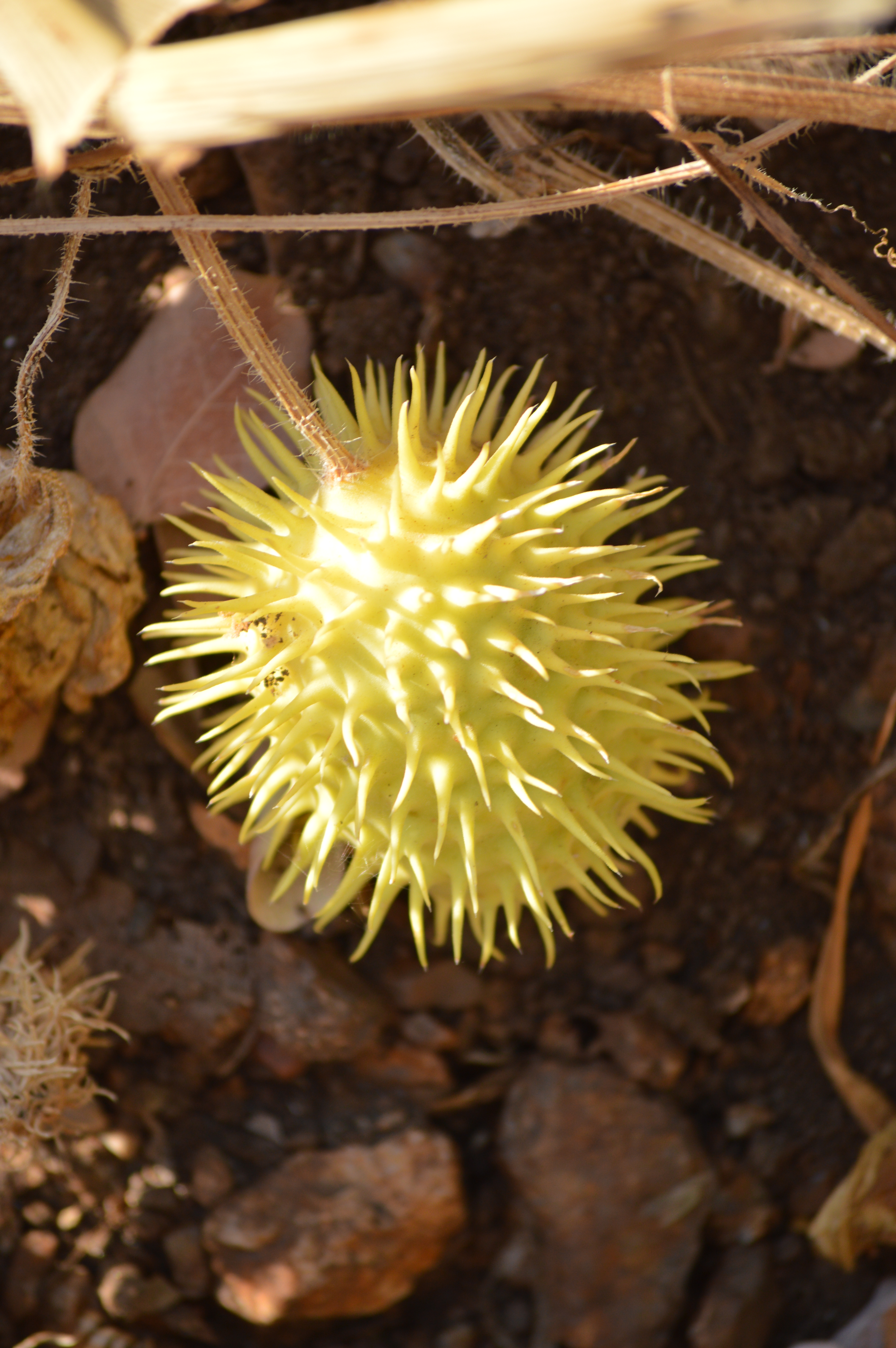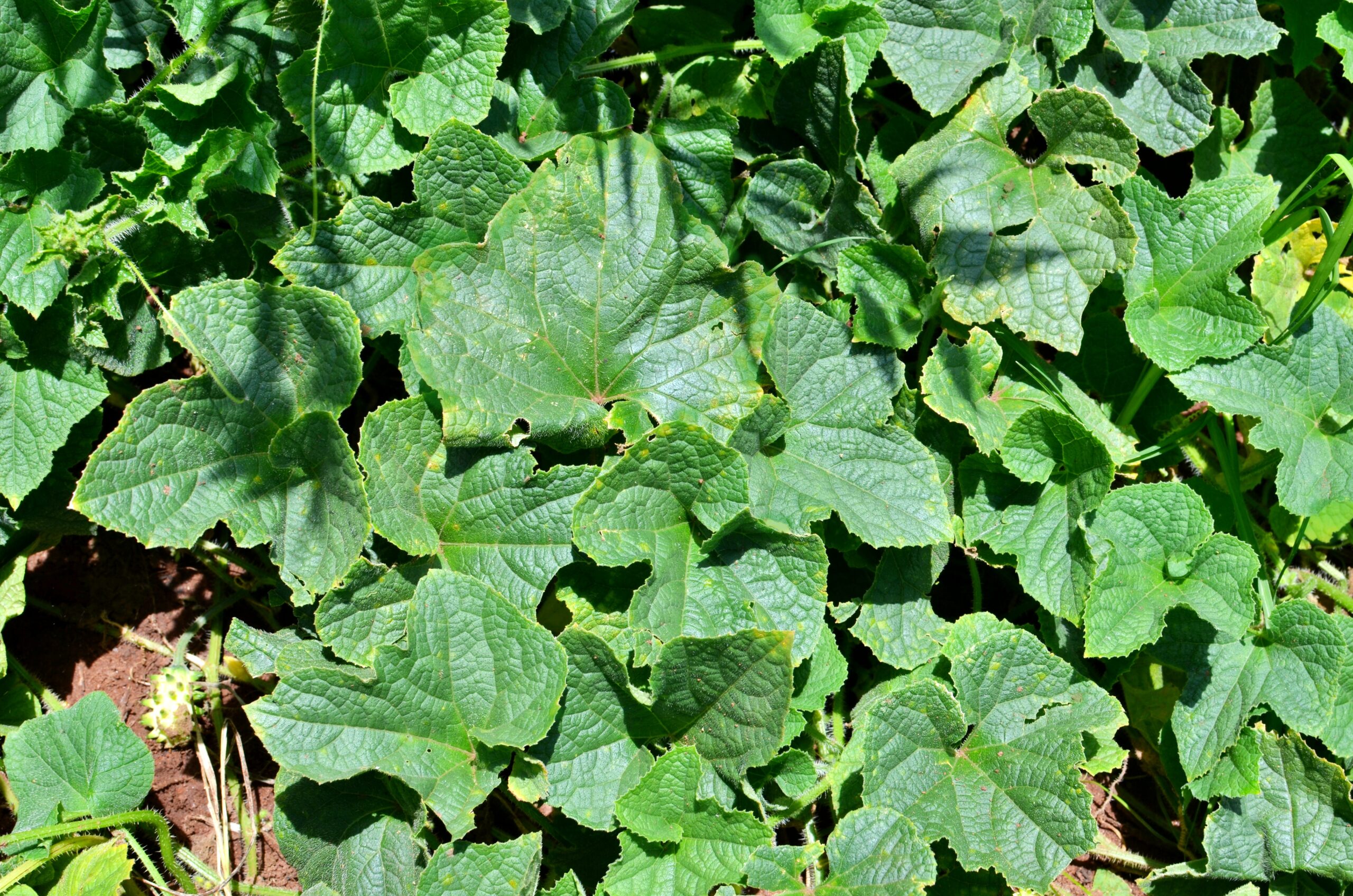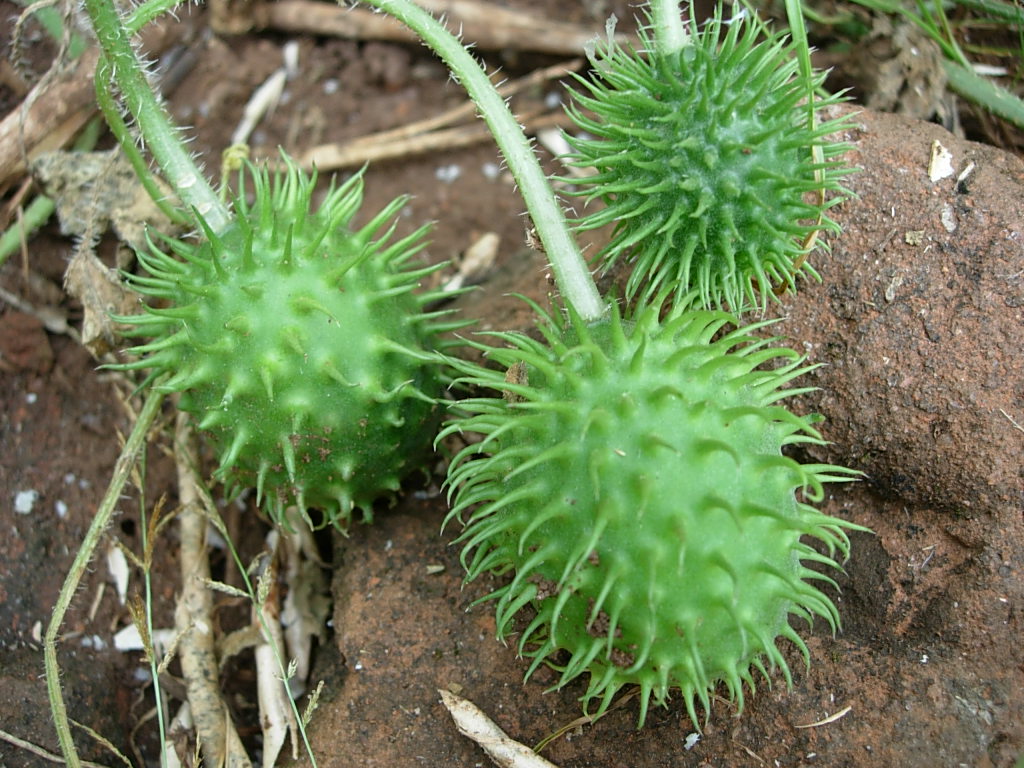
This wild cucumber (Cucumis anguria) is sometimes called ‘West Indian Gherkin‘, despite being indigenous to Africa. It is also referred to as ‘small prickly cucumber’, ‘maroon cucumber’, or ‘burr gherkin’. In Chichewa it is called ‘chikanyanga’ and is found throughout the country in fields, grasslands, and hill areas.
These prickly fruits grows to about 4 cm in size, and turn from green to yellow when ripe. Although they can be eaten fresh, they tend to be bitter in taste. In Malawi, the fruits are generally cut in half, the seeds squeezed out, and then the skins are cooked until soft (often with the addition of groundnut flour). Sometimes, the removed seeds are dried and pounded into a flour which is added to various dishes. The leaves are also edible, but reported to only be used when other vegetables are scarce (according to Useful Plants of Malawi).
Nutritionally, the fruits contain up to 95% water, but also some protein and carbohydrate. They are also high in potassium, and contain smaller amounts of phosphorus, calcium, and magnesium.
Medicinally, the fruits have been used traditionally to treat stomach problems. The fruits are also reported to have an antibacterial and antifungal activity; the leaves contain many useful compounds such as flavonoids, tannins, alkaloids, saponins and steroids which are used for high level of antioxidant activity; and the seeds have been found to destroy or expel intestinal worms.



All donations go directly towards helping to spread Permaculture solutions throughout Malawi. Every little bit helps, and even a little can go a long way!
